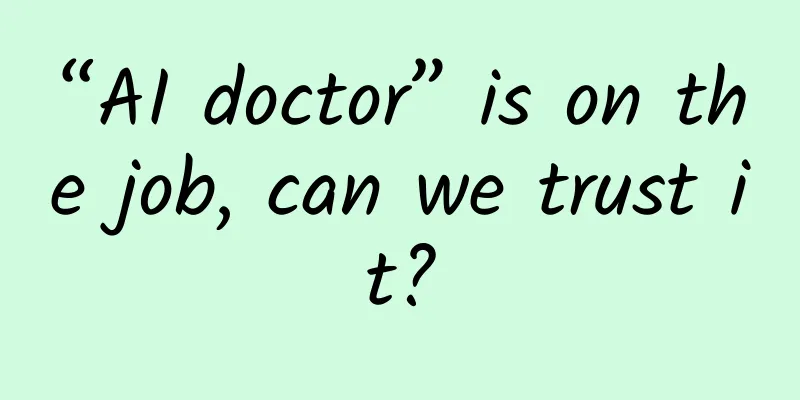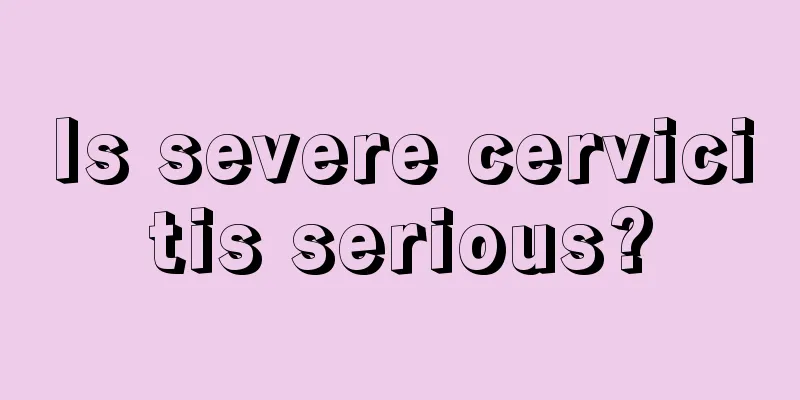“AI doctor” is on the job, can we trust it?

|
Late at night, in front of the smart terminal in the emergency department of Beijing Children's Hospital, a new mother scanned her child's medical report. A few seconds later, the diagnosis and treatment recommendations on the screen were completely consistent with the diagnosis made by the doctor on duty half an hour ago... Recently, the AI application boom triggered by DeepSeek has swept the medical field, and the topic of smart medical care has once again sparked heated discussions. Recently, the "AI pediatrician" of Beijing Children's Hospital officially took office, making people's understanding of smart medical care more concrete. When AI “puts on” a white coat, what kind of “chemical reaction” will occur in seeing a doctor? Previously, Mr. Xu from Linyi, Shandong uploaded his child's blood test report to DeepSeek, and the diagnosis he got was basically consistent with that given by the doctor. Similar cases have begun to appear frequently on the Internet. "The reason why AI can accurately diagnose diseases is due to its powerful data processing and analysis capabilities." Li Bohan, associate professor at the School of Artificial Intelligence at Nanjing University of Aeronautics and Astronautics, said that through deep learning of patients' medical history, symptoms, imaging data and other data, AI can identify complex patterns and associations between diseases and various characteristics, thereby providing a basis for diagnosis. In terms of medical image analysis, AI has an extraordinary diagnostic accuracy. Not long ago, Zhejiang University launched an AI pathology assistant that integrates visual and language models. It can lock cancer lesions in pathology images within 1 to 3 seconds and has achieved an accuracy of more than 95% in the diagnosis of various cancers. Smart healthcare not only brings accurate diagnosis, but also has the ability to quickly complete medical history collection, initial symptom screening, and improve the efficiency of doctors' consultations; it can assist in the diagnosis and treatment of difficult diseases and break through the limitations of doctors' memory; it can provide patients with personalized treatment plans and help doctors develop precise treatment plans, etc. According to statistics, the AI triage system alone can save 26 million hours of ineffective waiting time for the country's top three hospitals each year. When “AI doctors” start to work in large numbers, should we trust them? "Although AI performs well in diagnosis, the risk of misdiagnosis still exists." Han Guojing, deputy director of the Respiratory Department of the First Medical Center of the General Hospital of the People's Liberation Army, reminded that the operation of AI depends on accurate and standardized information input. If there is bias in the data or defects in the algorithm, it may lead to misdiagnosis. More importantly, AI cannot currently replace the clinical experience and intuition of human doctors. For some complex cases, the doctor's experience is still indispensable. "AI is very good at processing standardized medical data, but it is difficult to capture unstructured information such as a patient's hesitant sigh or cold sweat on the forehead," Han Guojing emphasized. Research data shows that the current misdiagnosis rate of AI is about 2%-5%, mainly concentrated in the fields of mental illness and complex chronic diseases. The "medical practice" qualification currently obtained by AI does not include the ability to sit for consultations independently. "When faced with the consultation of the 'AI doctor', we should give it a chance. We don't have to rely entirely on the diagnosis results. We can compare them with the diagnosis results of doctors and make a comprehensive judgment based on our own actual situation," said Han Guojing. "AI Doctor" will be a good doctor's assistant, not a replacement. "AI can be an encyclopedia in a stethoscope, but the hand holding the stethoscope must have human warmth," said Li Bohan. (Popular Science Times reporter Chen Jie) |
<<: Heart regeneration is no longer a dream? Please "patch" the failing heart
>>: Is there a small balloon in the baby's belly? How much do you know about hernia in children?
Recommend
How to practice yoga poses to maintain ovaries
The ovaries are very important for women. The mai...
Check up a few days after abortion
Abortion is a method to terminate pregnancy. You ...
The doctor said my teeth need "piling", what's going on?
"Your tooth needs a post and a crown..."...
What causes belly button pain during pregnancy
Pregnancy is a major event in life, and every exp...
Should girls shave their private parts?
Female pubic hair, like other hair on the human b...
What is the meaning of "Little kid, do you have a lot of question marks"? Who sings the Douyin song "Little kid, do you have a lot of question marks"?
What is the meaning of "Children, do you hav...
What is the best treatment for uterine fibroids?
As women's stress increases and their diet an...
To reduce dark circles, it is more important to solve them by type.
If you pay attention to skin care, you may find t...
What should a girl do when she has her first menstrual period?
A woman’s first menstruation is generally called ...
How to treat ovarian cysts?
Ovarian cyst is a relatively common ovarian disea...
What to do if a woman has anal prolapse
We know that the occurrence of symptom such as re...
Can I do housework while wearing a contraceptive ring?
In life, many women choose to wear an IUD for lon...
Can massage cure breast hyperplasia?
Breast massage can prevent breast hyperplasia, bu...
[Health Science] A chart to understand the best time to take common oral hypoglycemic drugs
There are many kinds of hypoglycemic drugs, and t...
Pregnant after rabies vaccination
I believe everyone should have heard about the ha...









